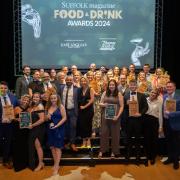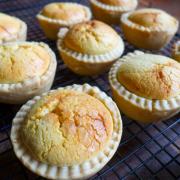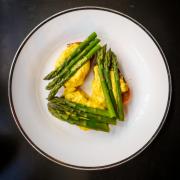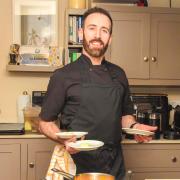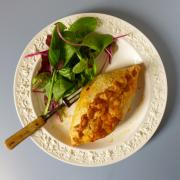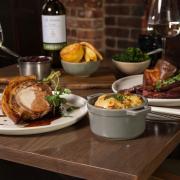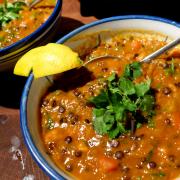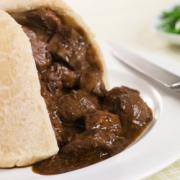We feel we know our wines these days. We probably have a preference for red, white or sparkling, French or German, Australian or Argentinian. We may be familiar with the regions, the grapes – and the prices – on offer at local supermarkets.
But what about English wine? Do you know your Valley Farm Sundancer from your Wyken Moonshine? Would you choose a Burnt House Chardonnay or Dedham Vale Colchester Oyster? Do you prefer Shotley Pinot Noir Rosé or a Hawkswood Bacchus?
In East Anglia there are more than 50 vineyards, according to WineGBEast. In Suffolk we have an abundance of award-winning wines produced from vines grown on the undulating landscape, beside rivers and bordering country lanes. Each location contributes something special and unique to the grapes and the wine.
Dedham Vale has a wine called Willow Lake, named after the view of water and trees as you arrive at the vineyard. ‘It tastes like the place looks,’ says owner Jan Wilson, of the wine’s summery aroma of apricots and greengages. ‘It’s reflective of where we are and what we are.’

‘English wine has got better and better and better,’ says Carla Carlisle, who arguably signalled the resurgence of wine making in this area when she introduced a vineyard to the farm at Wyken Hall near Bury St Edmunds 30 years ago. ‘Viticulture is more state-of-the-art than it ever was.’
There is greater exchange of ideas internationally, nationally and regionally, say the growers. There is better research into grapes, combatting and preventing disease, methods of pruning, and more techniques for vineyard floor management. As a result, producers are ripening grapes to a certain level and producing wines of a much higher standard, says Cat Scarff, of Burnt House Vineyard.
'Sunny Suffolk’ and our dry, sandy soil mean we also have the climate and conditions for vines; more people are diversifying farmland, or living their dream of owning a vineyard. Even French businesses are buying land in the south-east because conditions in Europe have changed and are no longer so supportive of wine production. It all seems encouraging, but Carla Carlisle cautions: 'My old mantra is “to make wine, you have to sell wine”. It’s easy to plant a vineyard, but there’s more to it than just growing grapes.’
Carla established and runs The Leaping Hare, an award-winning restaurant, country store, farmers’ market and vineyard. Other vineyards run events, weddings, tastings and tours to encourage people to their doors to buy their wine, and to experience the vineyard. Some, like Valley Farm, offer accommodation – a ‘Grape Escape’ in a cabin-in-the-vines. There’s harvest time too, when local people are invited to help pick the grapes, making friends, laughing and eating together, enjoying good weather and beautiful surroundings.

‘People like coming here because they can see we’re just a normal family who love the vineyard,’ says Charlotte Davitt-Smith, of Shotley Vineyard. ‘Buying a bottle of wine at the supermarket, do you know the story behind it?’ There are stories behind every vineyard. They’re often family concerns, passed down the generations, or a lifestyle choice for the recently retired, or couples starting out.
Jan Wilson and Michael Roberts bought the vineyard at Dedham Vale in 2012 after falling in love with the location. Michael had a background in science and finance, Jan had worked in design. They brought in management to run the site, but soon found themselves immersed in wine production. ‘It’s like having children,’ Jan says. ‘It’s there and it needs constant nurturing. You make an investment, a commitment and then suddenly it takes over.’
Irene and Michael Rhodes, of Hawkswood Vineyard, started out with a small winery, converted from a shed in their back garden in Attleborough, Norfolk, but their hobby got rather out of hand.


‘We’d been making wine for a number of small vineyards and, accidentally, won a silver medal for a Bacchus in 2015,’ says Michael. More medals followed and more requests from vineyard owners to make their wine. ‘We worked very hard on other people’s grapes to win them prizes.’ They wanted to grow their own grapes and sell their own wine.
‘We didn’t have any room to do it and I was cruising towards retirement, as a general surgeon, so we decided to look for somewhere with land for our own vineyard.’ They moved, with their dogs and the hawk that Irene flies, to a historic property in Thurston with sandy, free draining soil. Having planted vines in 2019, they quickly started winning prizes for their own wines. His scientific background has certainly equipped Michael with the skills for making wine. 'It’s basically chemistry,’ he says.
Blind tasting proves the quality of English wines, and their story will always make them a wonderful choice for a special occasion. ‘I think with drinks marketing, provenance is very important,’ says Linda Howard at Giffords Hall Vineyard, near Bury St Edmunds.
Since Linda and her husband, Guy (who sadly died in 2019), bought the property 23 years ago, the sector has grown tremendously and Giffords Hall award-winning wines can now be bought in Marks and Spencer and Waitrose. ‘If you look at the French, they've got several hundred years of marketing experience, and that's how they do it. It's about the story.’
English wine may seem expensive, but growers here don’t have volumes of sale or subsidies that huge growers in Europe or the New World enjoy, to counter the expense of running a vineyard. ‘We're boutique vineyards, really,’ says Jan Wilson. ‘We're always going to be niche, specialist, artisan producers. That’s our disadvantage and our trump card. This is a product that's about us here, now. It reflects our history and our soil.’
‘It’s important that we all succeed,’ says Cat Scarff. ‘We can create a brand awareness for wines of East Anglia and we’re all supportive of each other. It’s a really nice industry to be a part of.’
Shotley Vineyard
'Most of my life I’ve lived in Shotley and in 2013 a field near our house was up for sale,' says Charlotte. 'It was really overgrown, but we loved the view at the top of the hill. You can see the River Orwell and the (Felixstowe) docks. It’s very special. I realised we’d regret it if someone else bought the land and we couldn’t walk there anymore.
'We both still had jobs in insurance in Ipswich and we thought we might start a glamping business, so the sale went through towards the end of 2017. We found the vines there were in good health and needed some remedial pruning.
'In 2018 I was on maternity leave and started researching the English wine industry. I realised it was such an exciting and burgeoning industry, I couldn’t go back to the insurance job. The more I read, the more I spent time here, the harder it was to draw myself away. It was really exciting; we had the vines and almost immediately we could run a vineyard.
'There are just over 15,000 vines. The main varieties are Bacchus and Pinot Noir, but there are a number of different grapes. Perhaps the original owner was trialling different varieties to see what works here and in this climate.
'We have a café and we run tours as well as events, supper clubs and weddings. People want to come and know about you, and to buy your wine, but some people come every week for a coffee and cake. They enjoy looking out over the vines.
'No two seasons are the same. One year was really dry and I had a terrible problem with wasps. Another time there was a global glass shortage, and sometimes the disease pressure is high and that can be stressful. But you live and breathe the vineyard, and I have a real love for it.'
Burnt House Vineyard

Cat Scarff left a job in the music industry to work with her parents and brother on the vineyard in Finborough, planted as a farm diversification.
'Originally this was an arable farm and it was only in 2017 that we founded the first vineyard. We planted again in 2018 and 2019. My dad’s a big wine lover so he’s always dreamed of having a vineyard. Now we’ve got just over 22 acres on four different varieties – Chardonnay, Pinot Noir, Pinot Meunier and Bacchus.
'Initially, all we did was harvest grapes and sell them on to another producer. But we wanted to create our own brand, with hospitality and tourism too. There was endless opportunity associated with planting a vineyard. We felt it was an incredible thing to tap into and set the business up for the future.
'Sunny Suffolk, the lovely summers and the soil on this site have been good for growing our crops. We brought in a consultancy team at the beginning, but a lot of the expertise that the family has been able to bring from the agricultural side has been really important. After four generations, we know the soil.
'Last year we opened a new visitor centre and tasting building to showcase our wines. We offer tours and wine tastings, grazing boards with local meats and cheeses, and event nights too. We wanted to bring people in and showcase what we’ve been pouring our heart and soul into for the last five years.'
Carla Carlisle will be speaking at Lavenham Literary Festival’s annual dinner on Friday November 17 at The Swan Hotel, Lavenham, about her new book Another Country, a collection of her recent articles in Country Life magazine. lavenhamliteraryfestival.co.uk












